Is parenting with presence something you intentionally think about?
As we drove back home from hockey, me thinking of all the things I had to do when I got home and running through my next day’s schedule, I glanced over and looked at my teen as he scrolled his phone. It hit me how unavailable I was at times, totally caught up in my own world. The more I thought about it, I realized I want him to know that I’m here and present for him – not just for the good mom points (joking!..kind of), but for him to know that he matters and to set the stage for future generations – so that he also will treat others like they matter.

Photo by Canva
There’s a lot to tend to as a parent. You’re probably managing multiple schedule – your personal one, your family’s, your work, other commitments with friends and community, etc. There’s a lot going on and it can seem daunting to think of being fully present with your teen in the midst of all of this.
However, knowing how to activate presence in your parenting will help your teen (and you) build their confidence and resilience to handle the ups and down of life. Change can be difficult and kind of scary, so I’ve picked some of my favourite ideas to get you started.
First off, what is parenting with presence?
Parenting with presence is about connecting to the human experience of parenting. It’s imperfect, has moments of awe and amazement, can be raw and emotional at times, and it’s all around transformational experience.
What parenting with presence is NOT:
- Getting it right all the time
- Being perfect
- Dropping everything for your teen
- Never getting upset or your feathers ruffled
- Your teen always being happy

Photo by Canva
Parenting with presence is MORE LIKE:
- Being aware of your own inner experience (feelings, thoughts, etc.)
- Responding instead of Reacting more and more
- Accessing your calmness as a superpower
- Raising confident, caring, resilient adults
- Consciously letting go of old patterns that are not working
- Showing yourself and your teen some compassion

photo by Canva
Think about your big toe – or if not, your left pinkie finger. See if you can pay attention to it for a few moments. Notice it’s presence with curiosity, what it feels like, the weight of it, any sensations. You can even move it around a bit and see what that’s like.

Photo by Readers Digest
Ok, silly experiment over!
Were you able to bring your attention to your big toe or your pinkie for a few moments? The rest of your body was still there, but you were able to bring your awareness to that one body part and notice it specifically. When you choose to be present to something, someone, your own inner experience, it puts you in the driver’s seat and allows for an awareness of things that are often overlooked or on autopilot. Being in the driver’s seat is a place where you can make choices, you can respond, and you can step on the brakes or foot on the gas consciously.
Parenting with presence is kind of like that! Everything else is still there, but you’re in the driver’s seat consciously stepping on the gas – or the brakes – when it comes to your teen.
Susan Stiffelman, author of “‘Parenting with Presence: Practices for Raising Conscious, Confident, Caring Kids, does a real deep dive into what this concept means. You can check out her conversation with Jason Gardner here.
How can parenting with presence help my teen become more resilient or reduce their anxiety?
When you go into a conversation with your teen gun blazing with frustration or annoyance what happens? (Even if yes, you have had to remind them 5 times to take the laundry down)!
More than likely they respond back with pushback, shutdown, or in-your-face anger. Your teen is so importantly testing boundaries and asserting their independence and this often shows up in parent-teen interactions.

Photo by Canva
And trust me, I know and appreciate how difficult it can be to keep your cool – through and through! In fact it’s pretty unrealistic to imagine you would show up that way every time. So, I invite you to take a breath with me, and give yourself kudos for showing up today and reading this.
Parenting with presence invites you to focus on being aware of your emotional reactions to things and consciously responding to it.

Photo by Canva
It also increases something called co-regulation. Co-regulation is when your nerves are in a calm state as an adult, it helps to regulate your child’s nervous system. This happens heavily when your teen is younger – if you are calm, it helps to calm your child, if you are losing it, so are they. As your teen gets older they co-regulate more with their peers however, they are still impacted by your emotional responses.
This is one of the most crucial (and most challenging) benefits of parenting with presence. It is about checking inwards on how you are feeling, what you are thinking (assuming, believing, etc.), and taking a pause to respond instead of react.

Photo by Canva
Here are few things that you can do to respond instead of react to your emotions:
- Step away/take a time out for yourself to calm down
- Say how you are feeling, “I’m getting really heated here”
- Take a few slow breaths
- Pick a time and location that feels neutral to have more serious conversations with your teen
- Label your emotions (you can try using the feeling wheel below)
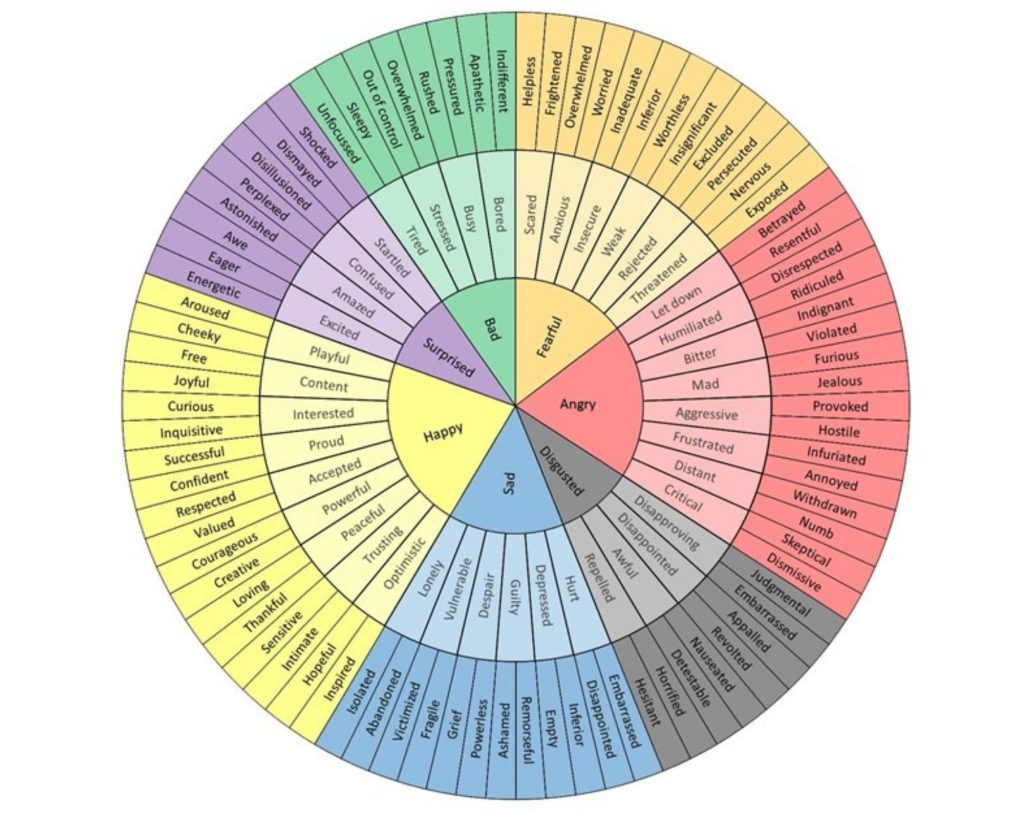
- Take care of your physical self (exercise, down time, sleep, nutrition)
- Increase your positive emotions by thinking about and remembering something that makes you feel love/connected/awe/happiness etc.
- Increase your positive emotions towards your teen by thinking of a time they did something that warms your heart
- Express your thoughts and feelings by talking to a trusted friend or going to therapy
- Create a meditation and/or mindfulness practice for yourself
The more you self-regulate, the more your teen benefits from it through your modelling, their natural co-regulation, and by creating more interactions that are calm and connected.
Self-regulating your emotions also helps you to come to your teen with a clearer head. When you feel angry, anxious, or frustrated for instance, it’s harder to focus, think clearly, and think flexibly – your brain is quick to get on the defensive!
When you are able to feel more neutral it opens up space to really hear what’s going on for your teen. If they can tell you about their rough day at school or that test they’re really proud of, you build up their sense of “I matter and what I have to say matters”, as well as fostering a strong bond between you.
Parenting with presence helps your teen learn how to take those emotional pauses. When you try (as much as possible) to respond instead of react to your emotions – leading to more open- flowing conversations – you also encourage reflection and perspective taking for teens. If they can talk through the latest blow out with their friend or share with you the reasons they think they should be able to go to a party on Saturday night, you are really helping them hone in on some essential skills needed for adulthood.
It is a real investment in raising a cool adult who can handle their own inner experience while navigating different life experiences.

Photo by Canva
Parenting with Presence. How do I do it??
Here are a few ideas that let you know you are parenting with presence:
- You are trying your best to check in on your inner experience. You are practicing being aware of how you are feeling, what you are thinking, and you are actively managing your emotions. You are human- and teens are masters of pushing buttons, so sometimes your emotions manage you. Keep practicing and it will pay dividends.
- You are facing your FEARS. As a parent, it is so easy to go down the tunnel of worst case scenarios when it comes to your teen…. They will end up hurt, doing something terrible, or even worse yet.
It is natural for you, as a parent, to want to do everything in your power to protect your offspring. Inevitably though, there is a process of letting go that needs to happen in order to allow your teen to step into their ability to handle various situations and make their own decisions.
Parenting with presence asks of you to acknowledge those fears, those worst case scenarios, and to lovingly put them aside in favour of teaching your children values while allowing them to make mistakes, fail, and learn from their choices.
Photo by Canva
- You keep in mind that you are raising adults. Your teen eventually is headed that way and these are foundational years that invite them to try adult roles in different areas of their life. As you keep the big picture in mind as much as possible, you are reminded that the end goal is to raise a capable, caring, compassionate adult who can live out their own experiences.
- You practice the good enough motto. You take the time to give yourself a pat on the back because you deserve that and you strive to do your best, knowing that parents are human and fallible meaning you also will sometimes fail and make mistakes, and that is ok.
- You are set on the gps on personal growth. Being a parent is a transformational journey. It tries and stretches you in unexpected ways. It can be a calling to learn more about yourself, your strengths, your weaknesses, your hopes and dreams. It’s an ongoing process and there are different legs of the journey.
- Take a moment to imagine what you want to get out of this journey – what matters most to you – what expectations/beliefs/values you hold most dear. You don’t need to figure it all out right now – remember it’s a journey.

photo by Canva
Susan Stifelman shares five more tips for you HERE as well as some more information in a video interview HERE.
For more tips & tools on parenting a teen with anxiety, you can download your (free) Anxiety Toolkit for Parents Raising Teens below. You will receive a PDF with tools you can implement immediately, along with 7 mini webinars from the psychologists here at Pyramid Psychology (including myself).
Tool Kit

Chantal Côté (she/her) is a psychologist and teen life coach living in Calgary, Alberta. After over a decade in non-profit and community mental health, Chantal started Pyramid Psychology, a practice dedicated to supporting teens – a population she is constantly amazed by. Chantal is on a mission to help 100,000 teen girls (and their parents) build bulletproof mindsets so they can weather the ups and downs of life. As part of this goal, Chantal has had the privilege of speaking at various events – virtual and live – to support teens and parents.
Outside of this passion, Chantal is often in nature, writing poetry, playing ball hockey and hanging out with her loved ones.
Each week, Chantal writes a blog article in response to issues she hears from the parents and teens she connects with.
If you have something you’d like to read more on – email ideas and questions to info@pyramidpsychology.com or DM us via Instagram or Facebook.

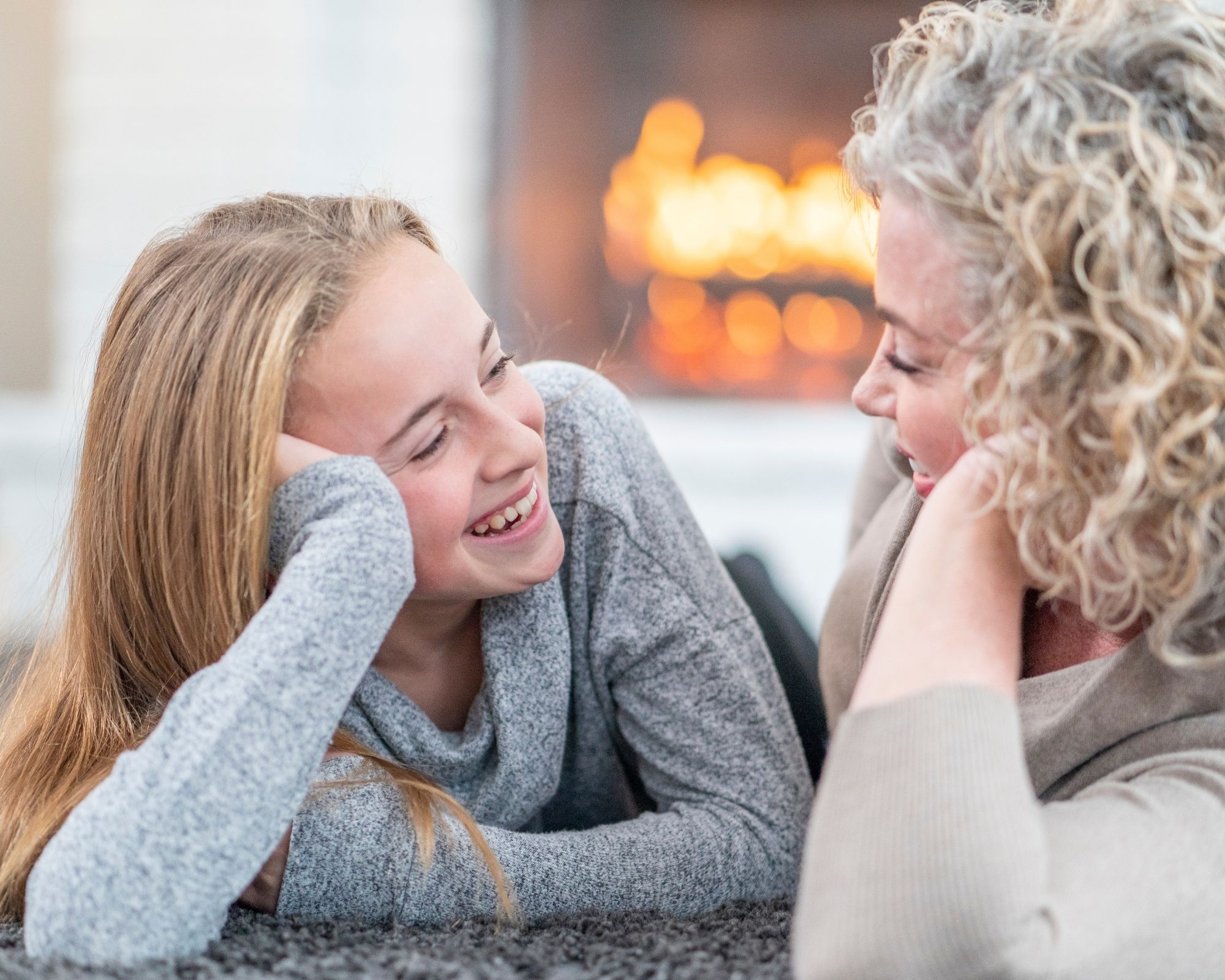













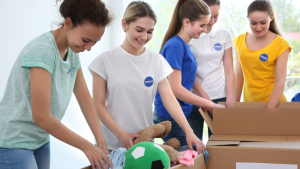








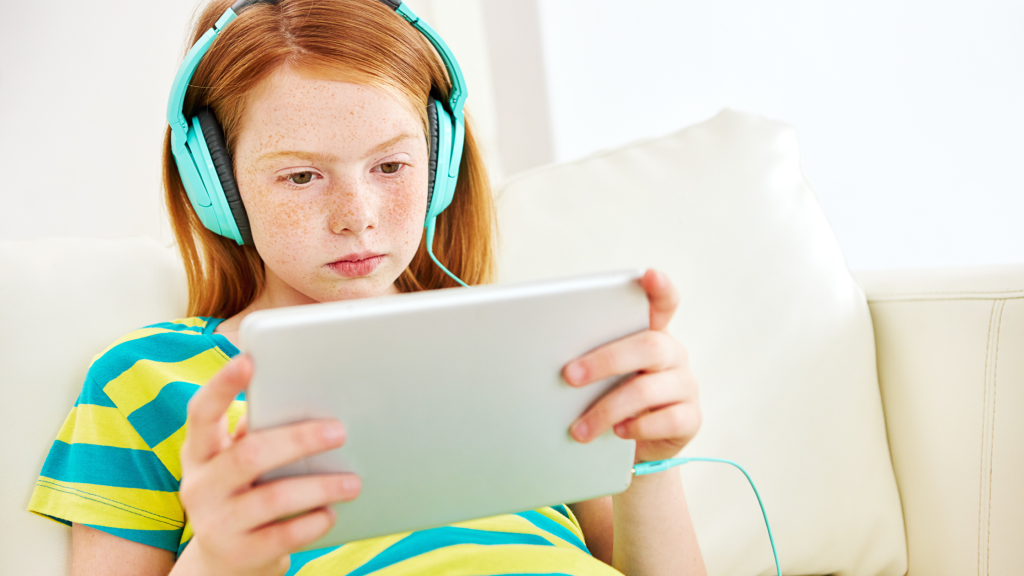

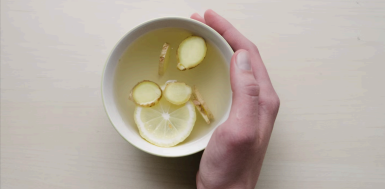
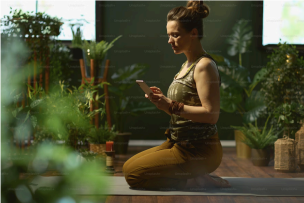 What I would tell my younger self (younger sibling). When I ask this question 9 times out of 10, teens tell me their advice for their younger person would be to wait as long as they can before they start using social media, to avoid platforms that constantly show them videos and pictures they compare themselves to, and to enjoy things outside of screen time.
What I would tell my younger self (younger sibling). When I ask this question 9 times out of 10, teens tell me their advice for their younger person would be to wait as long as they can before they start using social media, to avoid platforms that constantly show them videos and pictures they compare themselves to, and to enjoy things outside of screen time.
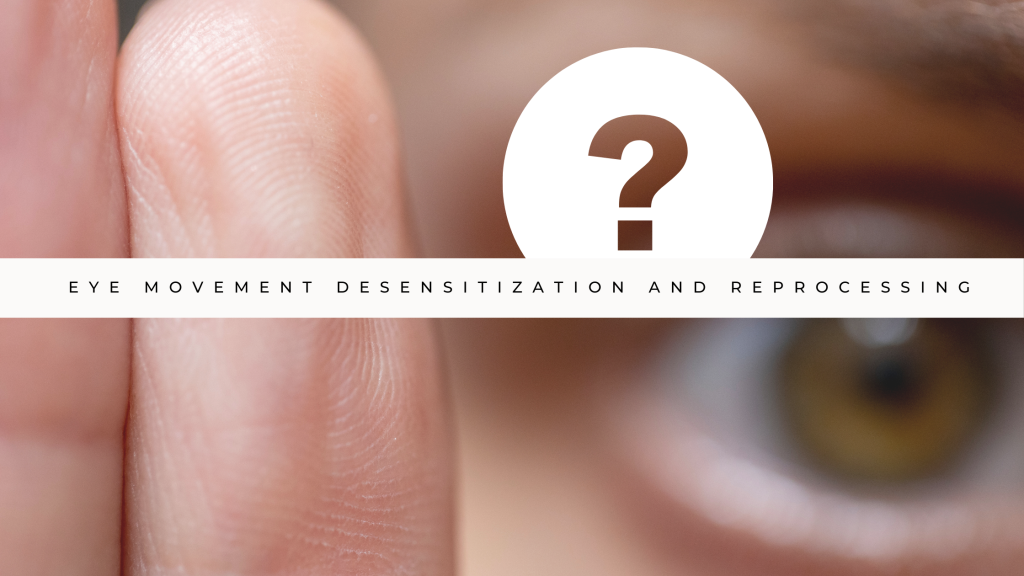





 Hello, my name is Tara, and I am a graduate student in counselling, I will be doing my practicum at Pyramid Psychology and I am very excited to practice all the skills I have learned as well as develop new relationships.
Hello, my name is Tara, and I am a graduate student in counselling, I will be doing my practicum at Pyramid Psychology and I am very excited to practice all the skills I have learned as well as develop new relationships.














 I am a registered social worker with a Bachelor of Social Work with a major in psychology from the university of the Western Cape, and a Master’s in Clinical Social Work specialization with individuals, families, and groups from the University of Calgary.
I am a registered social worker with a Bachelor of Social Work with a major in psychology from the university of the Western Cape, and a Master’s in Clinical Social Work specialization with individuals, families, and groups from the University of Calgary.









